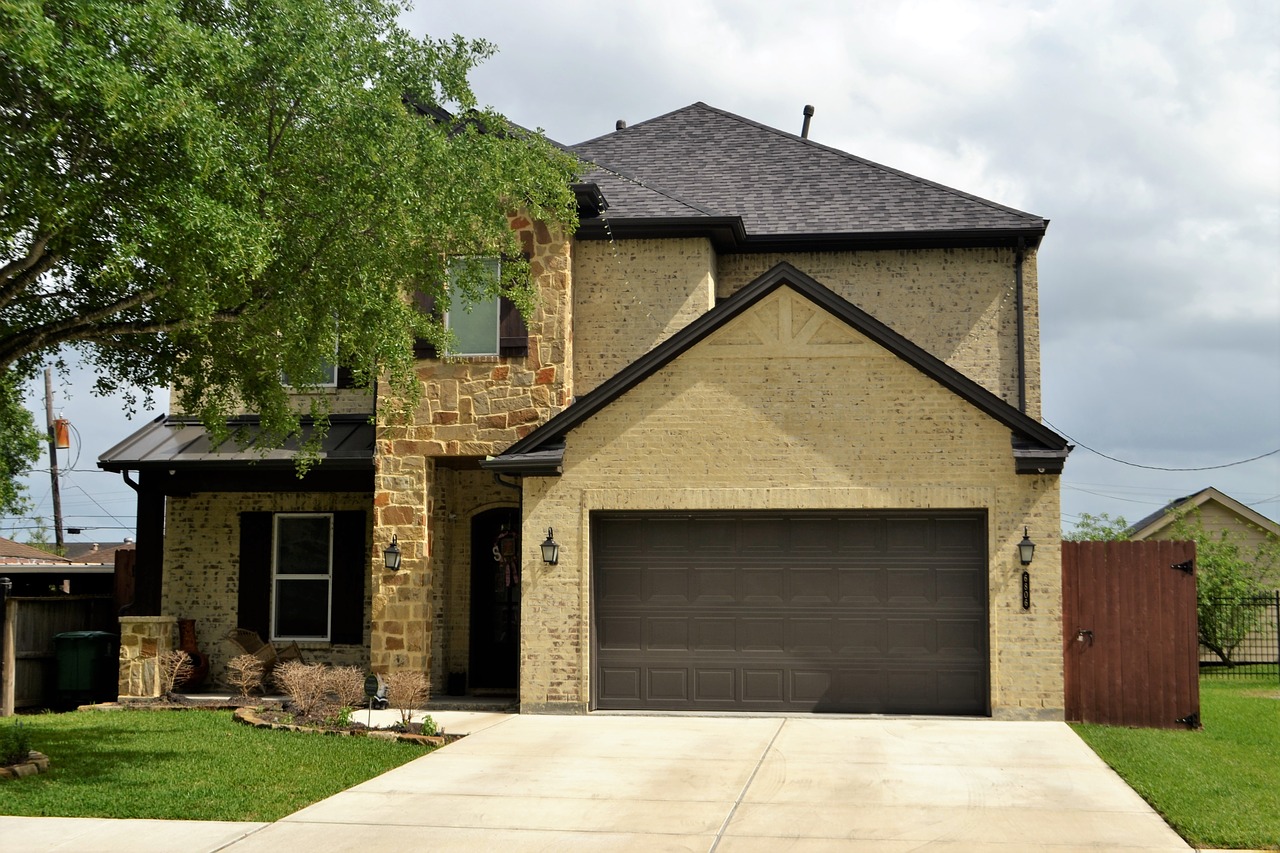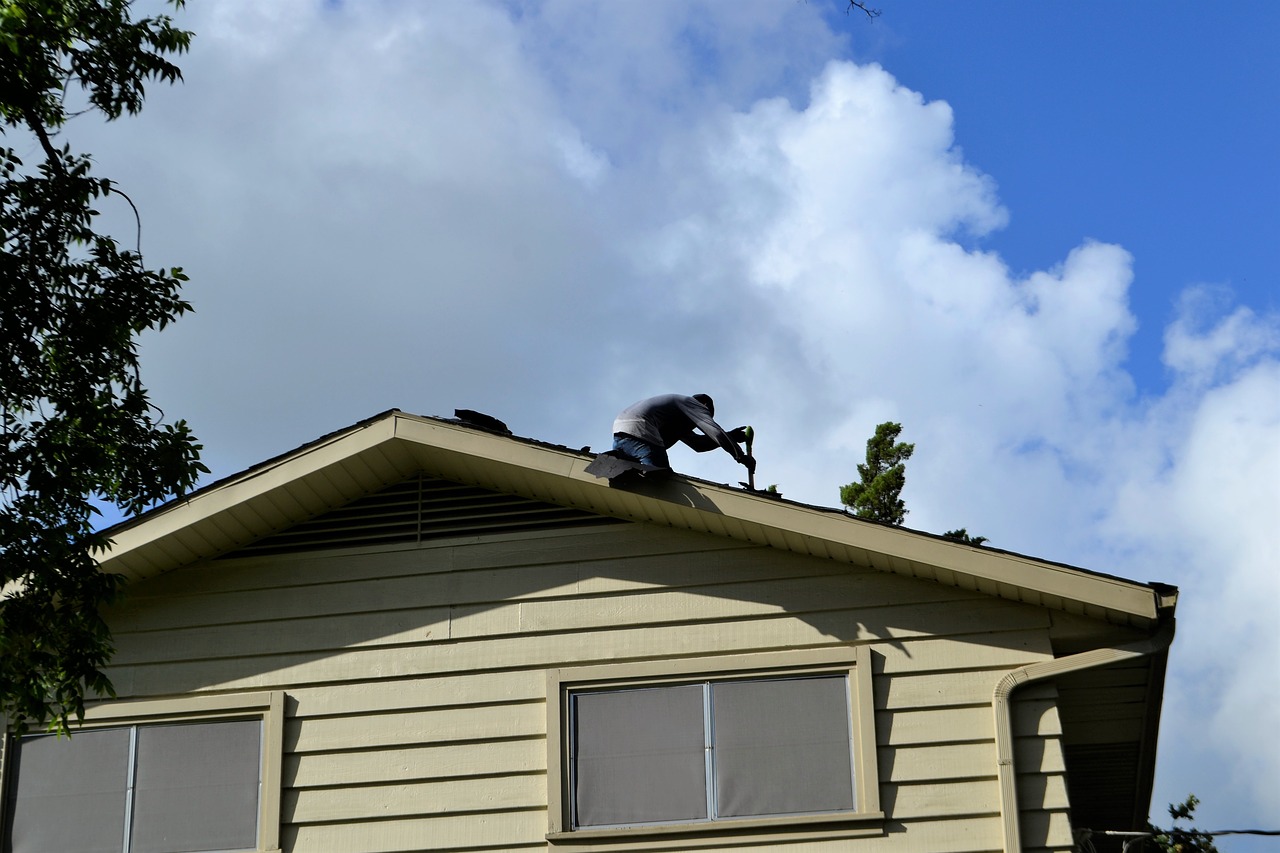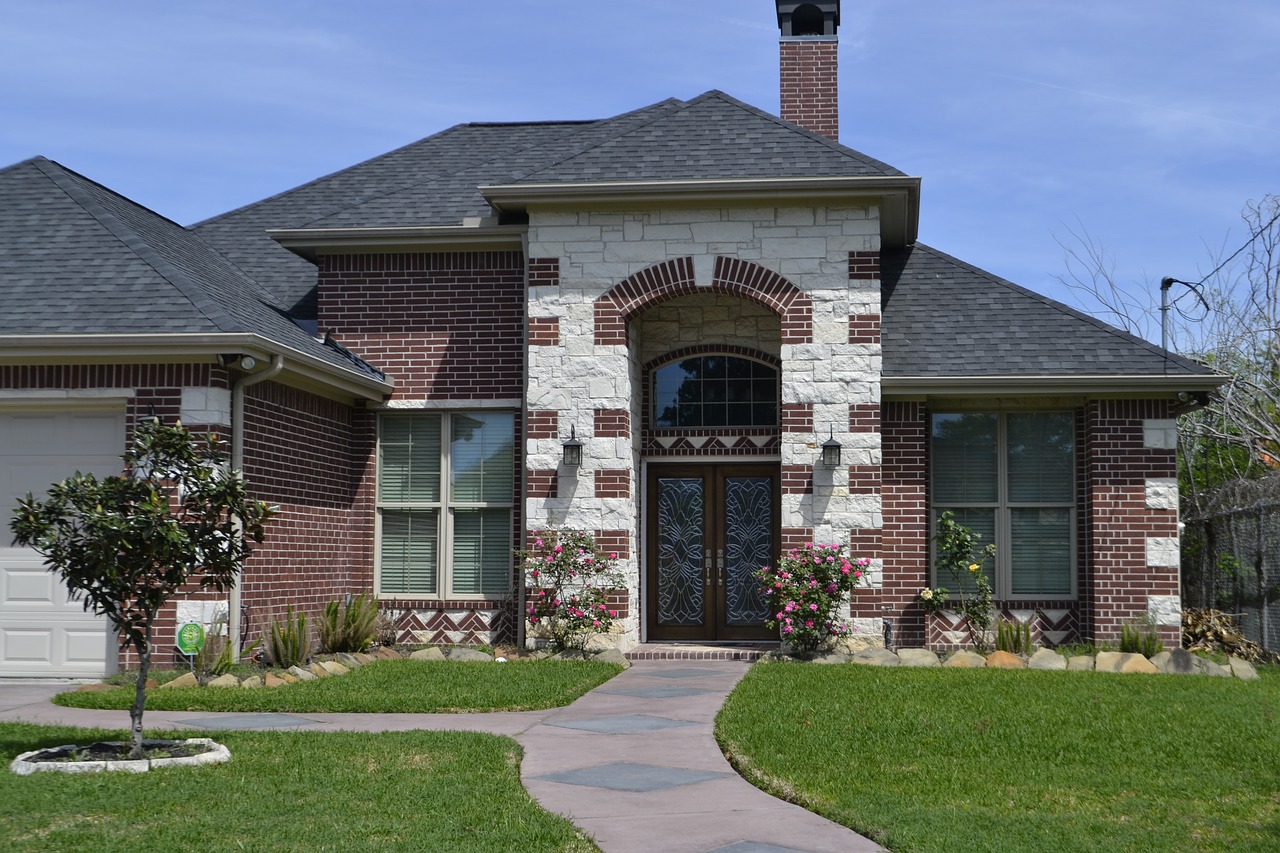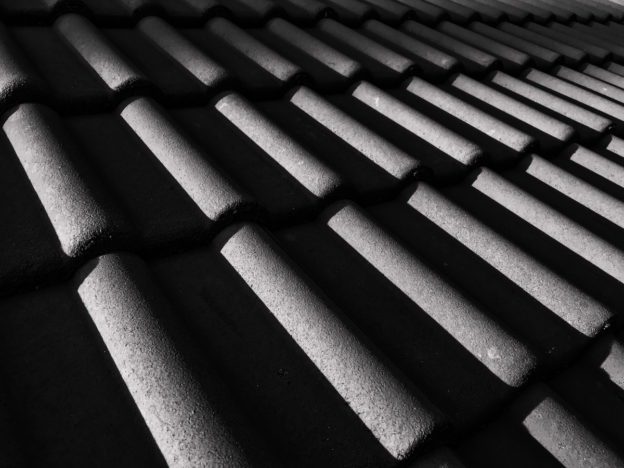You probably already know that black absorbs the heat, right? So, does a black roof make your house hotter? Is this something you want to avoid or encourage? Most of us know the agony of getting inside of a black car with a black interior on a hot summer day. It feels like an oven in there. But does the same principle apply to your roof?
If you want to know about some of the issues associated with darker roofs along with the heat characteristics of a roof, then you’re in the right place.
A lot of things can have an influence on the heat of your roof, and this can have implications for the heating of the rest of your home. If you’re trying to keep the house cool, it can also mean higher utility bills as you pump up the A/C.
The color and materials used to make the roof have a big impact on the temperatures inside. If your roof gets hot, that heat permeates into the lower layers of your roof. It’s harder for heat inside your attic to escape. This is one of the reasons why high-quality gable vents are so important.
Let’s explore how your roof color affects the temperature inside of your house and whether black makes a big difference.
How Can Roof Color Affect the Heat of Your Home?
Generally, lighter colored roofers will reflect heat away from your roof and darker roofs will absorb the heat and transfer it into the house below.
If you take a look at most commercial roofs, for example, you’ll see that they are often white or some other light color. Because many commercial roofs are flat or low-slope roofs, they need the added reflective properties to keep the sun’s UV rays out.
As black is obviously the darkest roof you can get, this color will absorb the most heat and warm your home the most.
Black, however, also seems to be one of the most popular roofing colors. Why is that? Well, darker colors hide blemishes easier, and many people appreciate the sleek, modern look that a black roof provides.
Thankfully, the roofing industry has come a long way in managing indoor temperatures to negate the effects of black or other dark-colored roofs.
It’s important to remember, when wondering does a black roof make your house hotter, that just having a black roof won’t necessarily keep your home warm by itself. There are a number of different factors that come into play here, especially how much heat the roof is under in the first place.
Factors that Impact Roof Temperature
These are things that can impact how hot your roof gets:
- The position of your roof relative to the sun
- The number of hours of direct overhead sun exposure each day
- Local climate
- Tree cover on your property
- Gable vent quality
- Roof materials & build quality
A dark roof won’t necessarily get that hot if you don’t live somewhere that gets a lot of heat in the first place.

However, the color of your roof could make a difference to things like energy bills and how much heating the rest of your home needs.
If you live somewhere hot and you want to keep your home cool, a lighter color roof might be a better idea. Alternatively, you could help lock in any heat you do get with a dark roof if you want to save on heating bills or live in a colder climate.
How Roof Material Can Play a Role Too
While roof color can affect heat characteristics a fair bit, it’s not the only factor. The actual material your roof is made out of is also important.
Shingles made of asphalt will absorb more and reflect less heat than roofs with a rubber coating. This could actually mean that lighter-colored shingles could be more absorbing than a dark roof made of a different material.
It’s worth keeping this in mind when you look to get a new roof installed, as both color and material are important in either reflecting or absorbing heat into your roof.

It’s not just a dark, absorbing roof that could save on bills, though. This depends on how much cooling you need to do in warmer months as well. A darker roof might make your home warmer, but what if you generally need to spend more on cooling your home than heating it? For example, if you use a lot of air conditioning, you might actually want a lighter-colored roof to help save on those bills.
If, however, you’re living in a colder area and want to keep your house warmer for longer, then a black roof might be the best call. You’ll enjoy warmer temperatures inside as the heat from the sun tends to stay around a bit longer.
Evaluate your climate and energy bills and see what’s more important to you, saving money on heating, or cooling a home.
Does a Black Roof Make Your House Hotter? – Deciding on a Black Roof
Generally, these sorts of calculations will lead you to the conclusion that a dark roof is good for colder climates and a lighter one is good for warm locations. The tricky part could be deciding what works best for your home if you live somewhere with both warm and cold months and similar energy bills in all seasons. In those locations, you might like to compromise on a brown roof.
As you explore whether to install a black roof or want to replace an older roof with something new, talk to some roofing companies in your area to get an idea of your options. Here are some things to consider:
- Price – Ask about the price of a black roof versus a lighter roof. For example, a lighter roof could cost more than a black roof plus your added utility costs. Then it may not be worth upgrading to a different color. Just stick with black.
- Design – Black is a popular roof color. You’re likely going to get the most variety when it comes to the design by going with something black or darker.
- Your Home Build – What is your home like and how will the roof affect indoor temperatures. If you’ve got good airflow and you’re not directly under the sun for several hours a day, then a black roof may not be a big deal at all.
- Stock – These days, certain materials are harder to come by. We’re seeing it all around with things like bathroom tiles, doors, and other fixtures. Choosing a lighter color may mean waiting weeks or months on your installation. Something to keep in mind.
People are also paying a lot more attention to energy efficiency when they build or refurbish homes these days. While things like solar paneling, thermal insulation, and underfloor heating are all important, so is the color of your roof (and the material used).
What Else Can Roof Color Affect?
Aside from absorbing heat (or reflecting it), roof color can also have a role in a few other things to do with your roof. Most notably is how your roof responds to snow in the winter. Dark roofs absorb and retain heat, so could actually help snowmelt.
However, this isn’t an efficient way of melting snow. It shouldn’t be the only thing you rely on. it might only make a small difference in some instances. That’s mainly because during the winter, even a black roof won’t actually be that warm. When it snows, there won’t be too much heat in the roof to melt the snow. There still might be enough for very small amounts of snow, but not a large flurry.

There’s another thing to remember with black roofs in the winter. If they’re covered in snow, even a light dusting, they won’t actually behave like black roofs—they’ll be like light ones. That means they won’t continue to absorb heat in the same way. This is an important consideration when looking at roofing colors. If you live somewhere that gets a lot of snow, it’ll basically be a light-colored roof.
That means that in really snowy areas, black roofs aren’t a big deal when it comes to does a black roof make your house hotter. It’s in colder places where they get completely snowy winters where you could save money with a heat-absorbing roof.
Does a Black Roof Make Your House Hotter? – Quality Matters
If you’re worried about whether a black roof will make your home too hot, then don’t be. It can play a role and affect energy cost, but it won’t make a cold house hot and vice versa. If there’s too much heat in your home, you can get things in order.
A darker roof needs to be installed by a good roofer and finished to a professional level. That’s because insulation and air flows are even more important when trying to make sure your home stays cool enough. Good ventilation is incredibly important when it’s hot if you’ve got a darker roof.
Hopefully, you’ve seen a few of the issues associated with having a black roof. In the right location, it could be the best choice for you.












